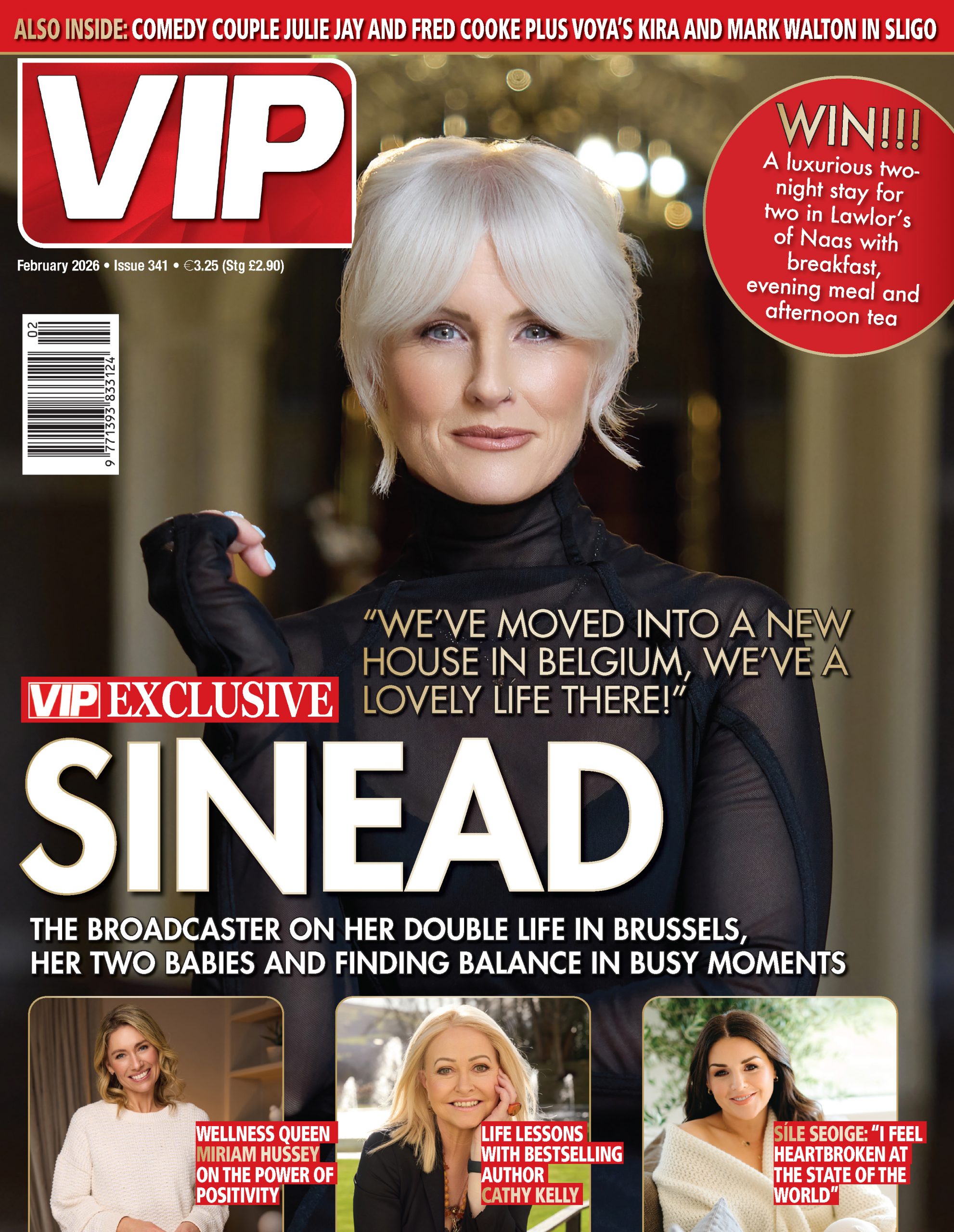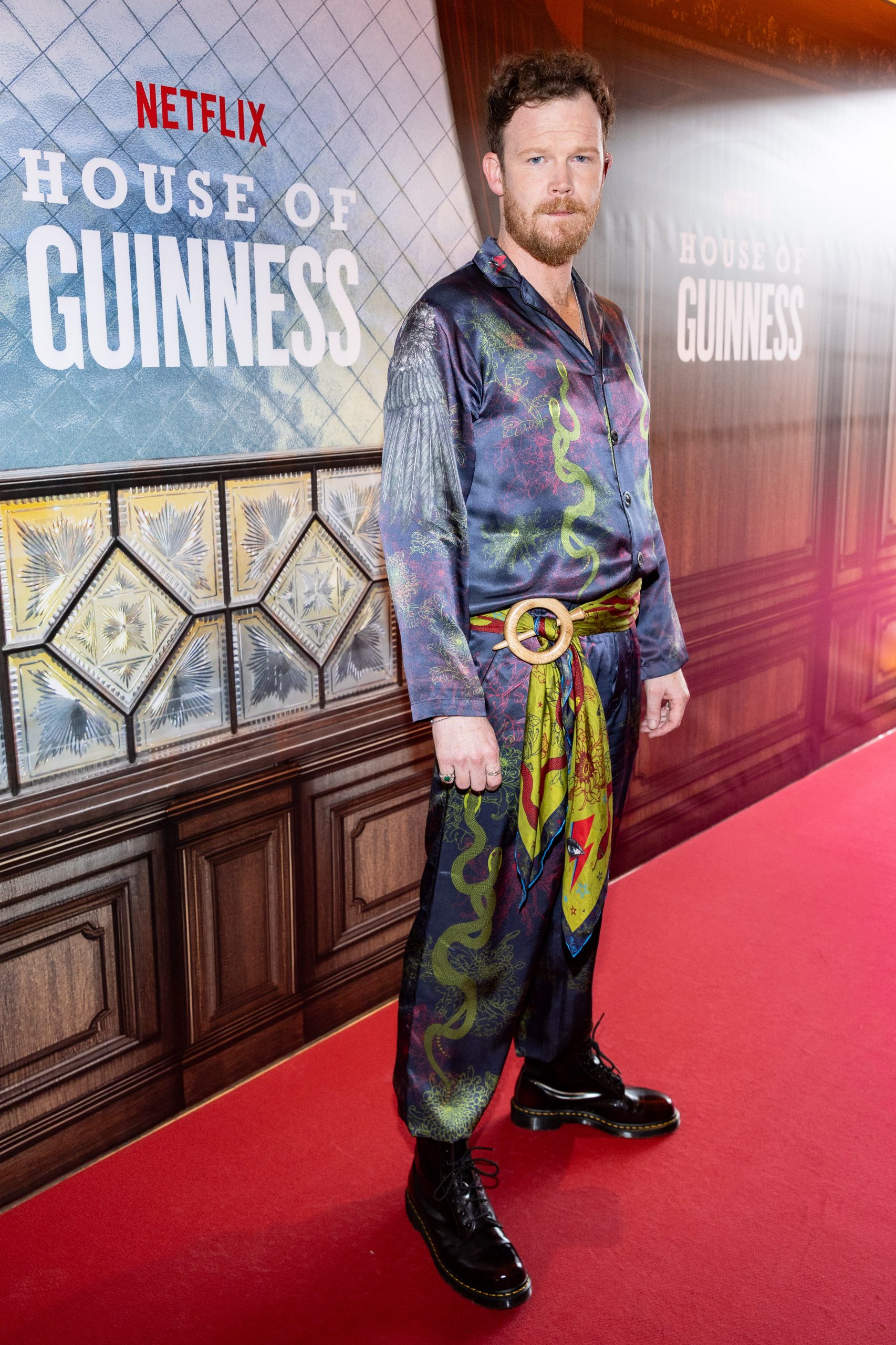
Cancel your weekend plans because we’ll all be watching House of Guinness on Netflix.
VIP Magazine sat down with Seamus O’Hara who plays Patrick Cochrane in the highly anticipated series by Peaky Blinders creator, Steven Knight.
We chat about playing a Fenian in the new series, Irish history and how to calm your anxiety…
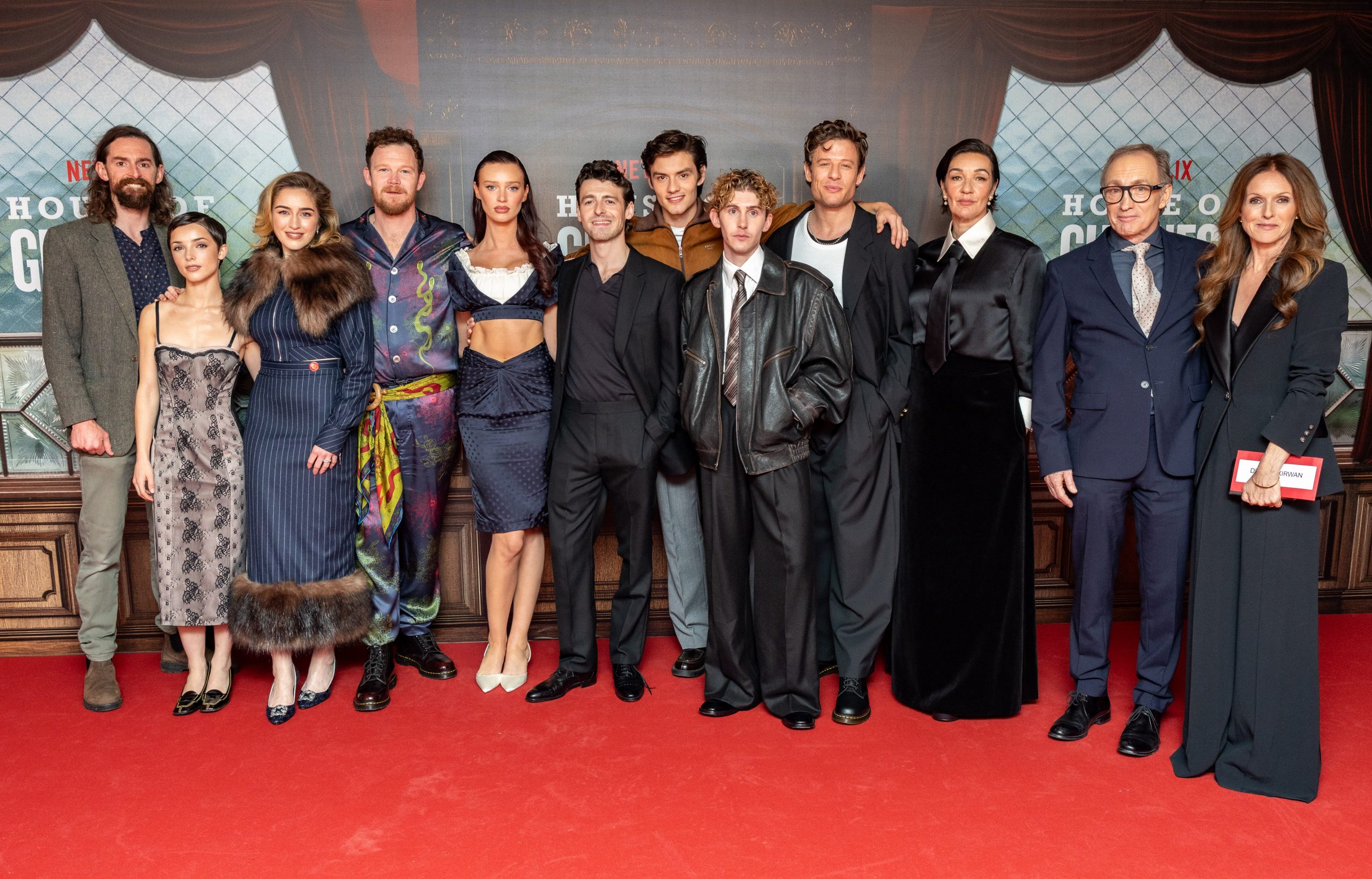
Seamus, congratulations on the show!
Thank you! It’s incredible, it’s so much fun, it’s such a rich world. The cast, the production, the direction, everything is top of the line. We all went out and tried our best, and I think it’s reflected in the work. It is really good.
You’re starring in House of Guinness and also in Say Nothing. Both of these shows are international productions with predominantly Irish casts. How proud are you to be involved in not one but two of them?
When you say you want to be an actor, you just never think that it’s going to happen. So it stuns me every time that I get to be a part of something like that. Especially with these great Irish casts and telling these great and often difficult Irish stories. We feel a lot of responsibility to do it right. For so long in the media, our identity has been mistreated for different reasons, but we have an opportunity here to sort of rewrite our identity on screen and how we are perceived.
How do you think viewers will react to House of Guinness?
I think people are going to love it. It’s telling the story of such an identifiable Irish brand. We all know Guinness, but it tells it in a way where there’s something to learn. But more than that, it’s really entertaining, it is really character driven and everybody, I hope is just going to become obsessed with this family. And the world around them and the power plays and the love and the hate and hurt and all those things, it has everything.
This is from Steven Knight, the man behind Peaky Blinders. So should we expect some Peaky-isms in it?
It’s like Peaky Blinders in the sense that it’s this massive, rich world with great character-driven writing. It follows family dynamics and power plays. Steven Knight is such a gifted writer. I think if you’re a fan of Peaky’s, you’ll definitely enjoy this, it’s the same kind of world-building. And if you haven’t seen Peaky Blinders, go watch House of Guinness!
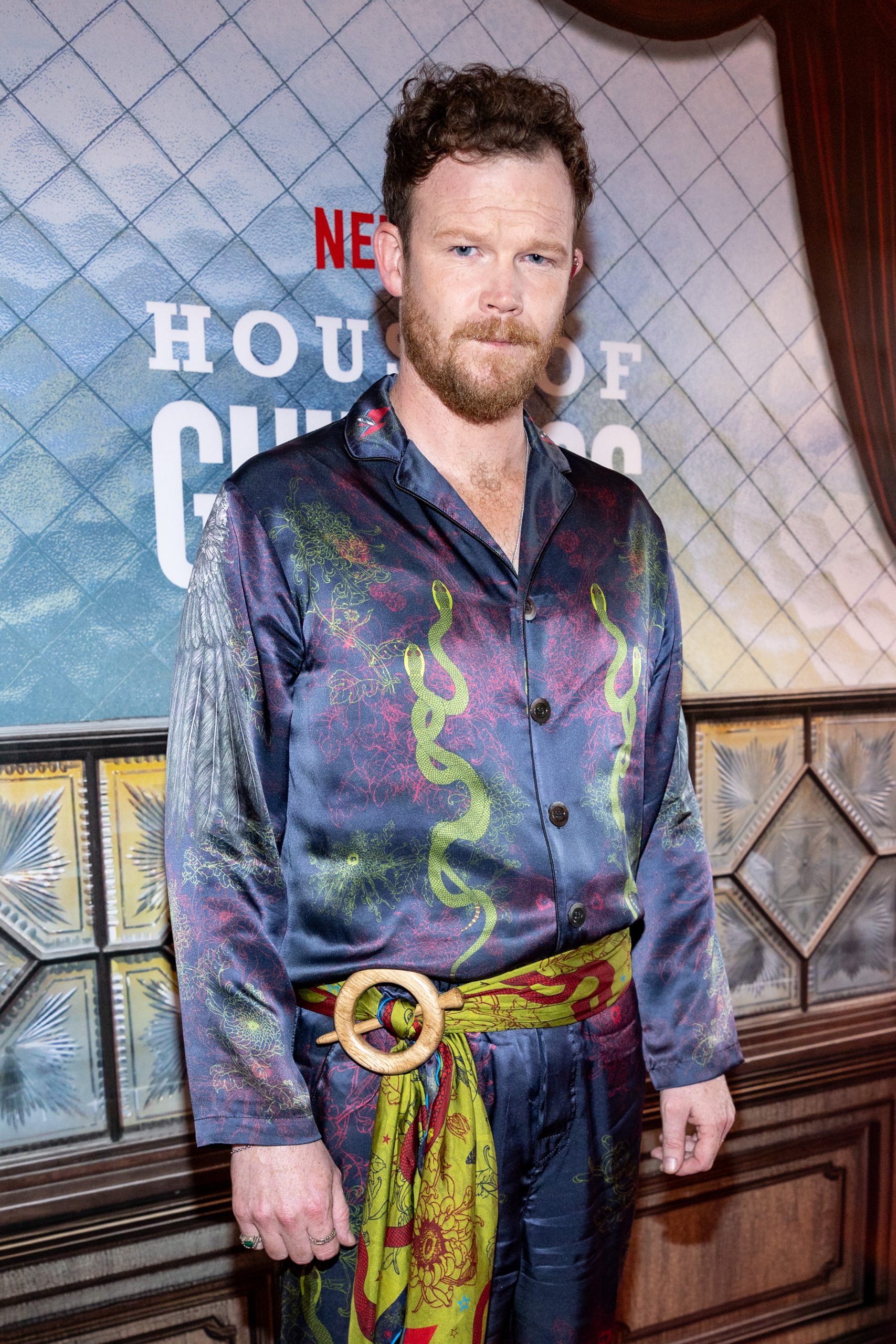
Brilliant! Tell us a bit about your character
I play Patrick Cochran, who’s the leader of the Fenians in Dublin, which means that he wants to see the island united. He believes the way to do that is through violence, and that’s what he represents. He represents the militant side of Irish nationalism, whereas his sister Ellen Cochrane played Niamh McCormack; she’s the brains, she represents going about it with a bit of negotiation. It is a really interesting part of the Irish nationalism conversation.
Your character is fictional but based in history. Does that take the pressure off when it comes to research?
I was lucky in a way, a lot of the characters in this TV show, like the Guinnesses, are real people, but Patrick Cochran he’s a fictional character. I had a lot of leeway in terms of not feeling too restricted. I didn’t feel too boxed into having to do it one way or the other. We were trying to be sensitive about understanding why somebody would want to behave violently at that time. You have to imagine that these people would have lived through the Famine. The famine would have been about 20 years previous to when the TV show is set. They all grew up through the famine. They were a very traumatised people, a very traumatised nation. That’s where I did my research, reading around that just so that we can kind of get a sense. We’ve been pretty broken.
Do you think growing up in the North of Ireland helped tap into that unrest?
We talk about these issues of Irish nationalism in the North a lot, for obvious reasons. That’s a very vital and active conversation. It’s something in the North that we’re very used to talking about. What’s the right way or the wrong way to represent things. It’s second nature to us in the North to treat these things sensitively.
In Ireland, we’re obsessed with Guinnesss! So do you think viewers will be surprised by what they see in the show?
I mean, they were educated and raised in England. They have these beautiful Irish-English accents that the guys have done a beautiful job in crafting. That was a surprise. They were a big Unionist family. I think there’s a lot of preconceived notions about Irish identity and the brand. It goes to show you that we now associate the Guinness Harp with Irishness. Whereas these people saw themselves as British too. But that’s okay because we live on an island that has British and Irish people in it, it has Irish and Northern Irish people, it has all kinds of different identities, we’re very used to this conversation. Guinness has this really long history and Catholics weren’t employed for a long time, eventually they were. Guinness became one of the first businesses in the world to introduce a pension, and they got up to speed with taking care of their employees, faith or no faith. There is this long history with it and it goes to show how important it is to examine all of these symbols and the things that we take for granted.
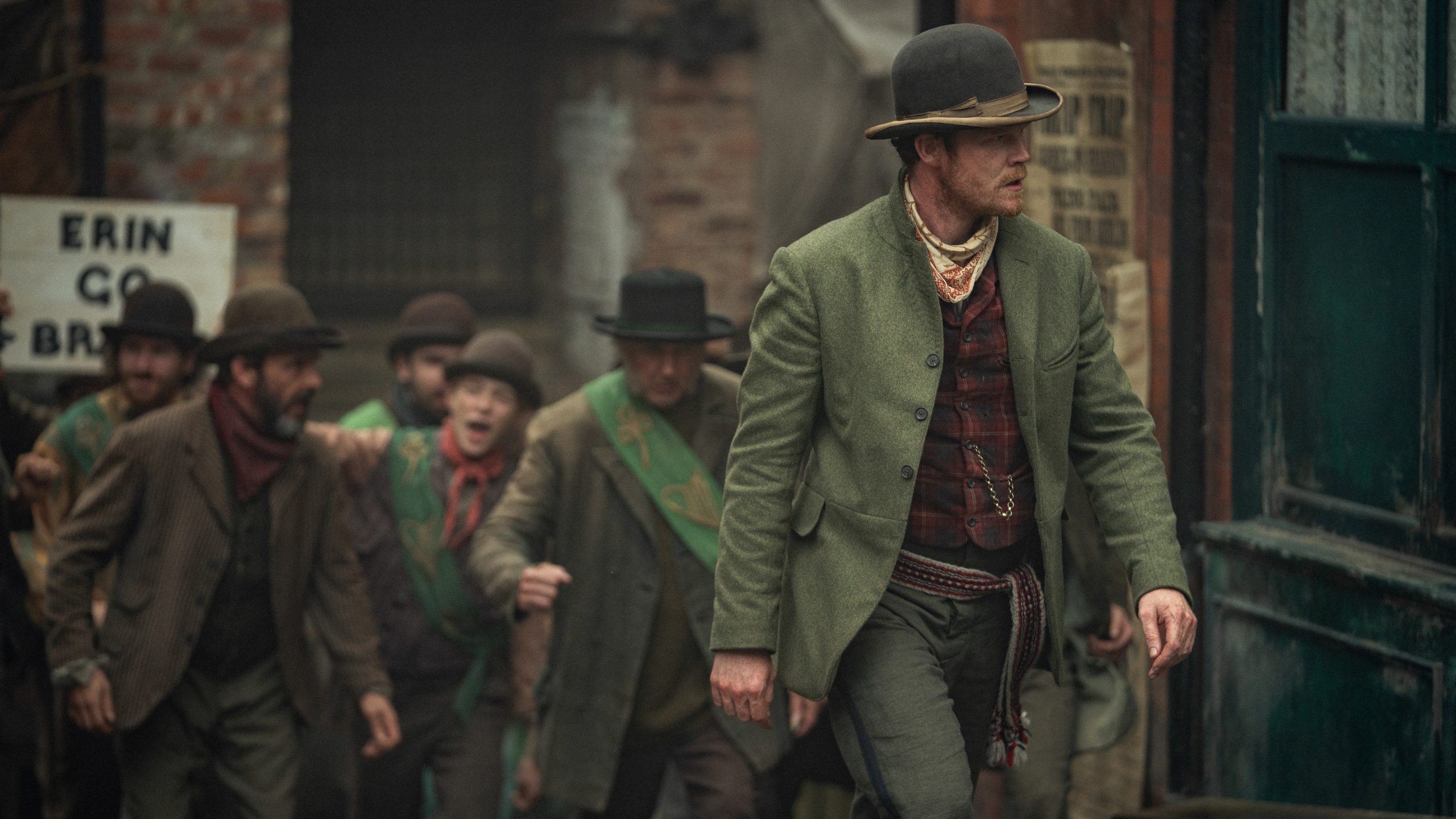
That will definitely be a surprise for people!
[Laughs] And if that bothers you, you’re going to love the Fenians, because they hate the Guinesses. In the TV show, our job is to make their life a nightmare. So, you’ll get plenty of that.
It’s such an exciting time for Irish talent. Are you proud to be part of this group of actors?
Massively so, and we all feel that. It feels like we’re having a moment. I don’t know what it is…Is it becoming more confident culturally as a nation, and knowing how to stand up and tell our stories ourselves? We are in an era where we are able to tell our stories ourselves. We are a nation of artists and thinkers and poets and writers and singers. That’s always been the case. They opened the door to us and we walked through it.
House of Guinness was filmed in the UK. But it looks so like Ireland!
It felt like you were in Dublin. They had chosen Liverpool and Manchester specifically because those cities have the same kind of brickwork and streets that Dublin would have had at that time. Manchester and Liverpool have huge Irish communities, so it felt like we’re at home anyway. The production design was of such a standard that there was very little imagination needed. We went there and it was all alive and real, and the sets were so vibrant with people and animals and smoke and fire. By the time they say action, you’re in it. It’s beautiful to look at the production design and the costumes and hair, it is gorgeous.
The costumes! How stunning. Did that help get you in and out of character just by putting on the clothes?
Yeah, yeah. When I’m finished work, I take ten minutes and just breathe and try and recentre myself and then get on with my day. It was a fun set. We were taking this stuff very, very seriously because our characters were very serious people, but we were having fun in between. We were aware the whole time that this was once-in-a-lifetime stuff that you get to do. So after work, we would take ten minutes of breathing, and then we would all go for dinner.
While this show was very fun, you’ve starred in more serious roles. So is your recentring a ritual you do at the end of every day?
It takes time. I mean, it took me a lot of years to realise that it was a thing that was happening to me. Your nervous system is on fire when you’re in performance, and it takes a while to get out of that. I’ve just learned over the years to just accept that your body is going to take a minute, or need maybe a week sometimes, to just re-acclimatise and get to a settled position again. Now, after years doing the job I can naturally try and keep an eye on that stuff rather than brush it off like I used to. I would get tired and burnt out. You need to address that and if you want to do good work again tomorrow, you need to prepare and recover. So it’s just common sense and trying to sleep, trying to eat. It took me years to realise that you have to take care of yourself that way, and that is a part of the job and the process. We’re all anxious because you want to do a good job, and sometimes our heads get confused, because anxiety and excitement are the same feeling. I try and tell myself when I’m anxious: “No, this is excitement you’re feeling right now. You’re excited, Seamus”. It’s important to say the things out loud as well, because I think that anxious people say all these things inside their head where they have power, and as soon as you speak it out, it loses all its power. It seems silly and manageable most of the time anyway.
House of Guinness is now streaming on Netflix




